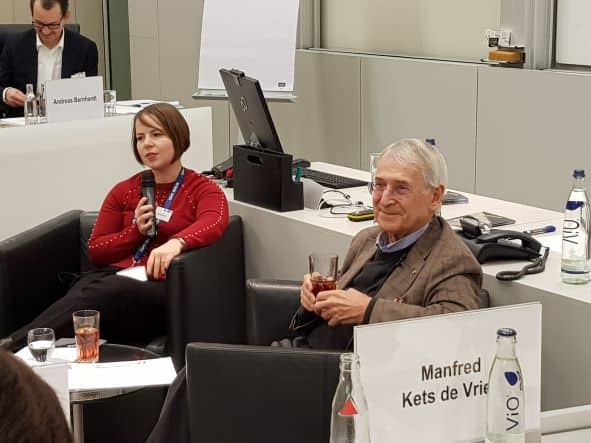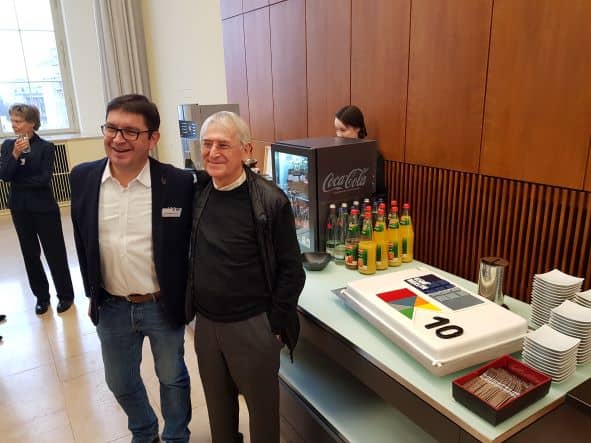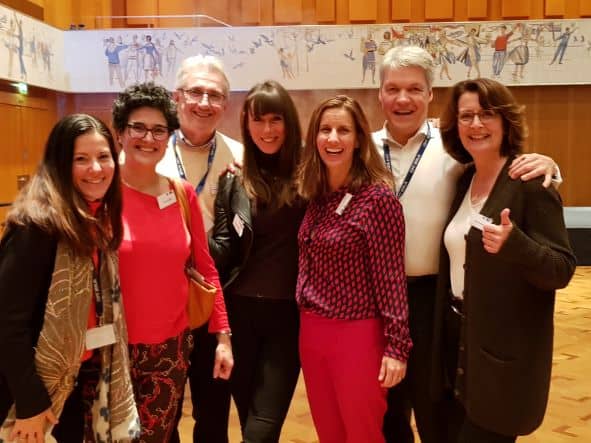The ESMT/KDVI Coaching Colloquium is the annual conference for about 50 – 60 invited international senior coaches. Two days filled with lectures on actual coaching topics, skill exchange and case supervision.
In 2018 the topic “New leadership? New coaching?” initiated great discussions around the influence of AI, agility and virtual methods on coaching. Only ten years ago coaching via video conferencing was a no-go. Nowadays it’s standard. How will coaching look like in the near future? Will robots conduct coaching? How important is the human factor for coaching? Disruption is already happening in the coaching business with coaching platforms offering virtual coaching sessions for low price. Coaches have to stay open and curious to the digital developments and adapt respective impulses to their work and services.
Brigitta Wurnig conducted a session about “Success factors for agile teams – or how we wrote a book in three days” referring to her experience with her Book Sprint in 2017. Like in the workshop in Johannesburg in August 2018 participants were very interested in agile methods for teams and the major roadblocks for agile teams. It turned out again that trust remains the key factor for team work and a big ego will distract agile team work.
Manfred Kets de Vries, one of the best coaches worldwide and co-founder of the Coaching Colloquium, shared his longstanding coaching experience and perspective on new leaders. His presence was magnifying, and we learned that at the end of the day also new leaders remain human beings with emotions seeking for success. Not surprising, but again good to be aware that robots can only substitute certain services and humans have to enhance their emotional intelligence to make a difference.
The 10th ESMT/ KDVI Coaching Colloquium was the last one in this format. A big thank you to Konstantin Korotov, Professor at ESMT, and Manfred Kets de Vries, KDVI, for inviting a group of excellent and experienced international senior coaches over the last ten years to Berlin.
The exchange with experienced colleagues during the plenary sessions and in the case supervisions was the most beneficial part of the colloquium. We will all miss learning from each other, expanding perspectives, and extending our networks.




